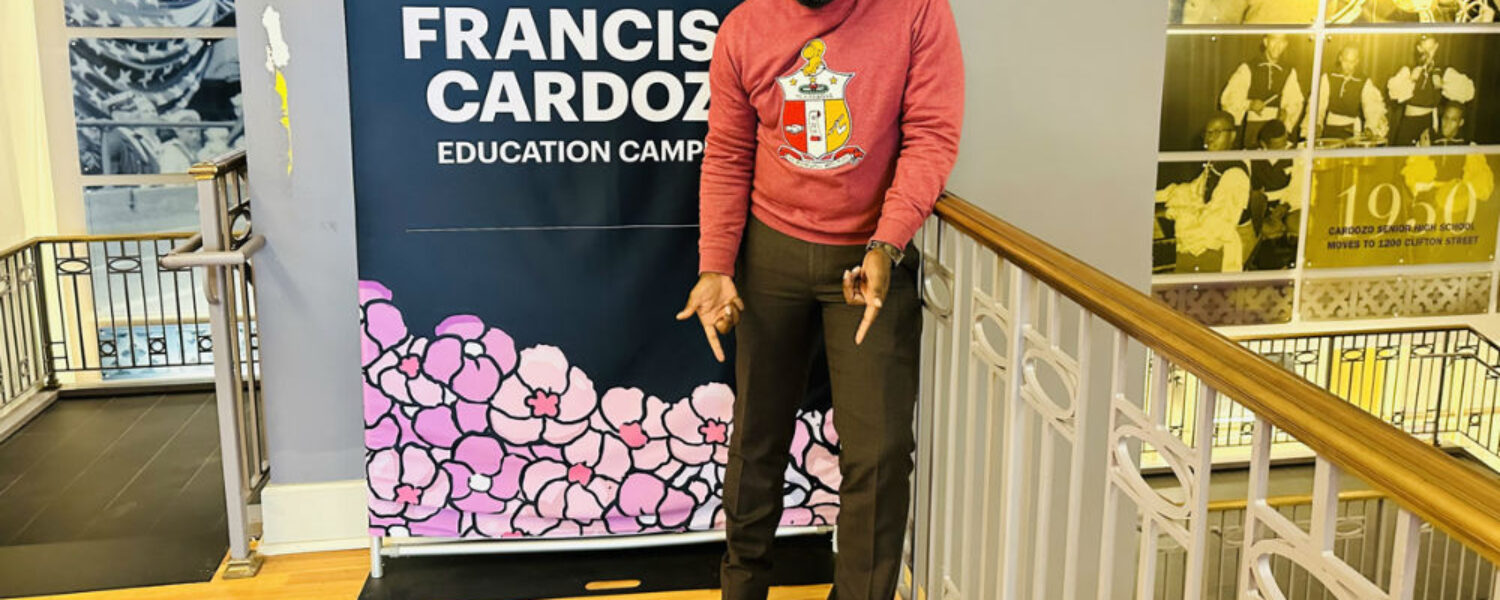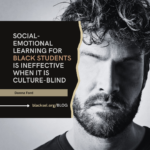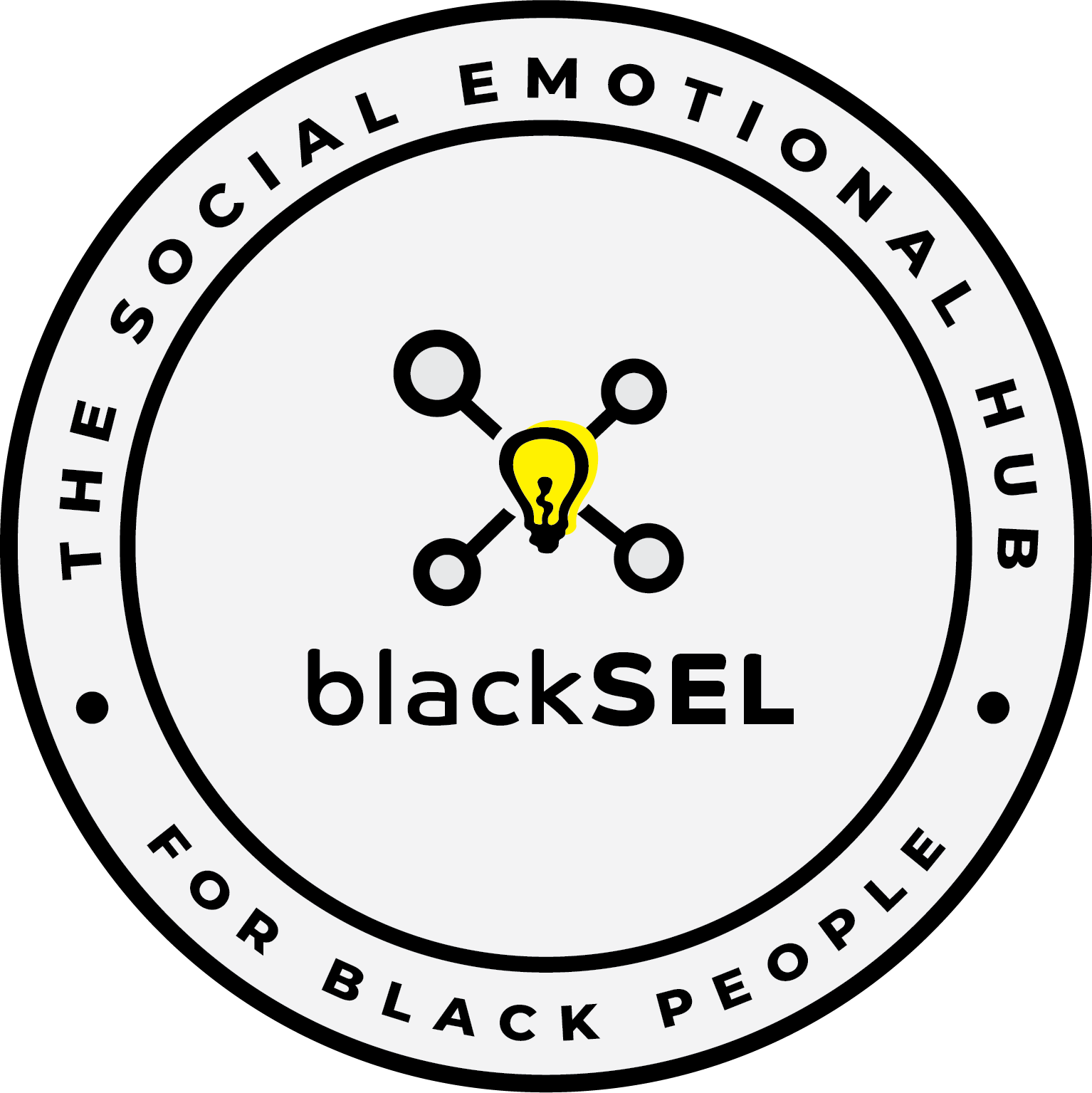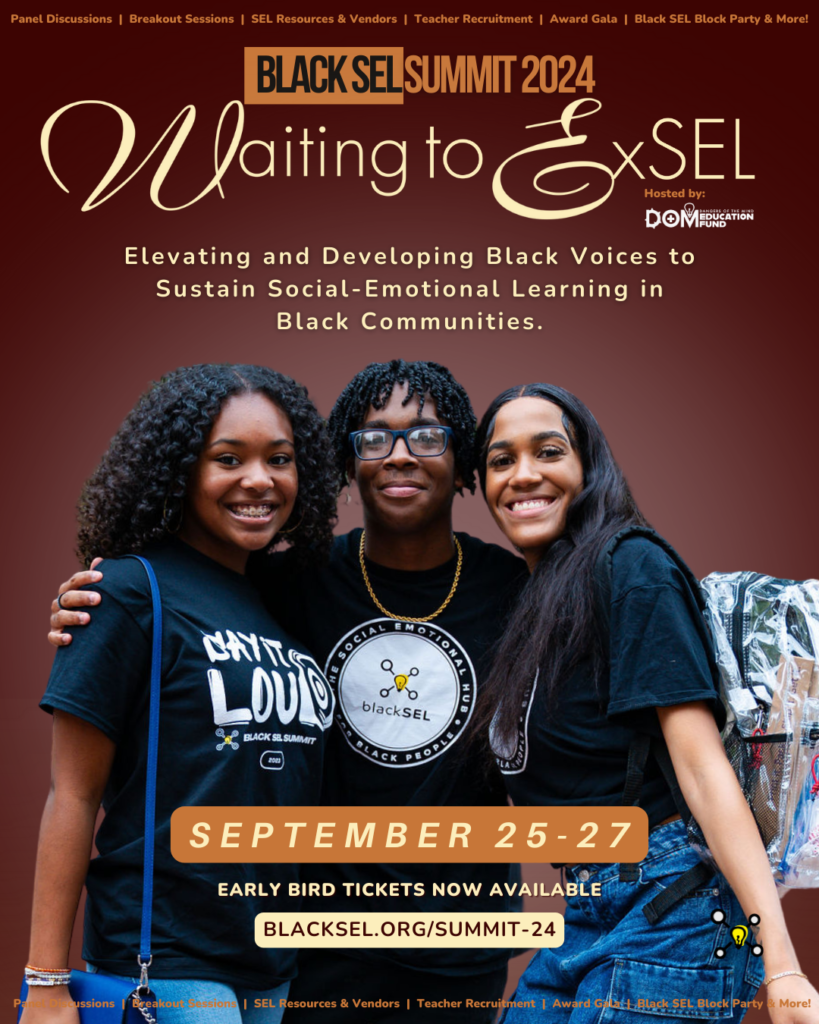How wearing sneakers helped me engage with and listen to students as I thought differently about the future of high school.
This article has been produced in partnership between The 74 and the XQ Institute.
My dad hates that I wear sneakers to work.
A high school teacher for 38 years, my dad, Darrell Blake, wears a shirt and tie to school every day. To him, it’s a matter of professionalism and respect: teachers teach, and students learn. That’s how it’s always been. In order for students to respect your authority as the teacher, you need to set yourself apart from them — that’s the power of a shirt and tie, and it’s why he’s always telling me, over and over again, “I just wish you’d wear some hard bottom shoes to school!”
I used to agree with him.
My dad was my first role model of a Black male educator. Growing up, I spent night after night at the dinner table, listening to him tell stories from the classroom. He spoke passionately about his hopes and dreams for his students and the kids he connected with and mentored, some of whom became lifelong friends and part of our family. Seeing those relationships inspired me to become an educator, connect with students and work to shift their life trajectories. My father’s legacy became my life’s work, too.
I started my career as a high school teacher 17 years ago. Like my dad, I wore a suit and tie every day. I quickly found a disconnect in the classroom — between teachers and students, between schools and communities, and between what we teach our kids and what skills and knowledge they need to succeed in this world. We were still trying to teach students the same ways we did 38 years ago when my dad started teaching, which was the same way we did things 100 years ago: teachers in suits and ties standing in front of a board talking at students who sit at their desks and work quietly on rote memory assignments.
We were having a one-way conversation with our students. I realized that in order for kids to learn, grow and be successful, they need to do more than just respect their teachers — they need to relate and connect with us, and we need to communicate with and respond to them. They need learning experiences and structures that are relevant, rigorous and engaging. Those experiences and structures form the foundation of authentic student-teacher relationships that have a real, lasting impact on their education.
I was thinking about these interactions at around the same time I took a job as redesign director at Cardozo Education Campus in Washington, D.C. The position was supported by DC+XQ, a new partnership between the D.C. Public Schools and the XQ Institute. In my role, I collaborate with school and district staff, families and community partners to help bring our reimagined vision for Cardozo to life. Out of all these stakeholders I engage with, students are the most important. That’s why a fundamental part of my job is asking myself every day, “How can I break down barriers and build authentic connections with our kids?”
I read an article about the importance of sneakers to Black boys, that “sneakers are statements that define their personality and character and speak to their self-worth and self-respect.” It pointed out how educators can use that recognition to build relationships with their Black students, so I decided to give it a shot and started wearing sneakers to school.
Listening to students is just one way to rethink high school. For more, check out The XQ Xtra, a newsletter for educators that comes out twice a month. Sign up here.
As redesign director, I focus on rethinking systems. I have the opportunity to work with my school community and district to disrupt what traditional schools have looked and sounded like over the past 100 years, and what has been invaluable about this partnership is that it’s entirely community-driven.
I don’t sit in my office every day and think up all these grand ideas. We directly partner with our students and their families, asking them, “How can we create a productive learning experience for you?” “What support do you need to be successful as a student?” At the same time, we ask our teachers, “How do we imagine a new teaching environment?” “What support do you need to be successful as a teacher?” Redesign is the process of facilitating and systematizing these conversations, engaging closely with our stakeholders, and breaking down barriers between schools and communities.
As the nation’s first all-Black business high school, dating to the early 1940s, Cardozo’s student population is now more than 50% Multilingual learners. We knew the immense learning potential in our student body, so we jumped at the chance to move through the DC+XQ design journey, an opportunity to boldly reimagine what life at Cardozo could look like. As a part of the process, we deeply engaged students, families, educators and community members to redesign education from the ground up.
We heard a common theme: students were hungry to take control of their economic futures and wanted to learn more about financial literacy. That’s why we redesigned our high school as the “Cardozo School of Business.” We are centering the student experience on entrepreneurship in ways that build on Cardozo’s strong history while being responsive to the needs and interests of our current community.
From enrollment to graduation, all Cardozo students will become inventors of their own learning paths, careers and lives, as they develop and implement small business plans that build year-over-year through their high school journeys. At the same time, we are infusing rigorous high school academics with real-world business and financial skills. By integrating a list of 10 entrepreneurial skills, or “E-Skills,” as we call them, into every classroom, we are ensuring that every one of our students gains fluency in financial literacy, gains skills and experience in entrepreneurship, and, ultimately, will graduate with the ability to approach any opportunity or challenge with an entrepreneurial mindset.
Cardozo’s old educational model could not have enabled us to provide these resources and opportunities to our students and educators. A more traditional or typical reform process may have treated financial literacy as a garnish on top of an existing school.
But through DC+XQ, the XQ Learner Outcomes have become an integral part of everything we do at Cardozo. One of those outcomes is Learners for life. We are working to ensure our students can take their entrepreneurial mindset beyond Cardozo and continue learning through the evolving process of opening and sustaining a business. This mindset will help our students succeed after graduation, whether in college, the workforce, the military or at a trade school. Ultimately, Cardozo’s redesigned structure will allow us to fundamentally shift the trajectory of our marginalized families and ensure they have equal exposure and access to becoming financially stable.
And that’s where my own redesign fits in. Changing from hard-soled shoes to sneakers helped me build better connections with our kids. Students started saying things like, “Oh, Dr. Blake got the newest J’s that just came out,” or, “Oh, I see you out here, Dr Blake!” These are things that the students all say to one another in jest or due to familiarity.
Once I have that connection and shared interest with them, I can use that to invite students into their educational journey and let them know they have agency and power at Cardozo. When we break out of these century-old ideas of what relationships between teachers and students should look like and what teachers’ shoes should look like, when we invite students to be decision-makers and stakeholders in their own education, and when we systematize relevant, rigorous and engaging learning, that’s how we build authentic connections and institutions that impact and shape the lives of our students.
What gives me the greatest satisfaction as redesign director is witnessing the same joy in our students that my dad described at the dinner table growing up: The students are exhilarated to learn in the classroom, connecting with their teachers and developing skills they relate to and value. At Cardozo, the DC+XQ design process gave us a playbook and resources to boldly rethink what high school can be — and not just here in the nation’s capital. These tools and resources are available for any community with big dreams for its students.
The truth is that any school can walk the walk of creating innovative, community-based education models for our kids. We can do it boldly and proudly. And we can do it in sneakers.
William Blake is a longtime educator and redesign director of Cardozo Education Campus in Washington, D.C., a public high school that’s part of the DC+XQ partnership.
To learn more about the DC+XQ partnership, please visit this page.
Disclosure: The XQ Institute is a financial supporter of The 74.





